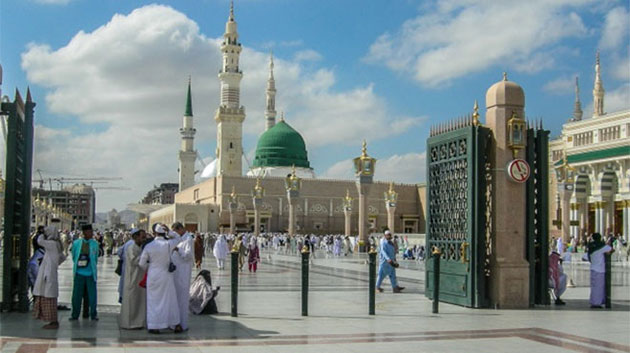Japan Strengthens Economic Ties with Saudi Arabia
Saudi Arabia To Stop Depending On Their Oil, And More
Main points in this article:
- Japanese companies are advancing infrastructure maintenance and investment in Saudi Arabia
- Saudi Arabia must change its attitude towards work and their pre-modern judicial system
- Japan and Saudi Arabia can establish win-win relations
Japanese companies are very interested in entering Saudi Arabia. With the visit of King Salman to Japan, the two countries agreed to a series of developmental projects: 11 government-related and 20 private.
Japanese Prime Minister Shinzo Abe and King Salman held a summit on the 13th of March and came to an agreement on the government project “Saudi-Japan Vision 2030”. The two countries will become equal strategic partners, and Japanese companies will be given a designated zone in Saudi Arabia to allow fluid entry into the country.
With the private projects, Toyota is considering producing cars and parts in Saudi Arabia, and three megabanks including Mitsubishi Tokyo UFJ Bank have decided to cooperate in promoting investments in Saudi Arabia. Toyobo agreed to cooperate in technological development of desalination plants, and the Softbank Group is planning to set up a huge investment fund in collaboration with Saudi Arabian funds.
Saudi Arabia Is Trying to Create New Industries
Until now Saudi Arabia’s sole source of income was oil. As a result, the country’s industry ceased to develop and harsh regulations turned off foreign companies from entering their market. The weak oil prices in recent years have plunged them further into debt.
Realizing the impending crisis, Saudi Arabia is now trying to stop relying on oil and is inviting foreign capital to help make their industry flourish. Their immediate goals are infrastructure maintenance and encouraging investment.
Electricity and gas supplies are fairly unstable in many parts of Saudi Arabia, and the city transportation network is also in need of maintenance. This new project agreement means they can finally improve their infrastructure maintenance.
Saudi Arabia is also planning a rebirth into an ‘investment state’ by encouraging foreign countries to invest. The Saudi Arabian national oil and natural gas company, Saudi Aramco, is planning to list 5% of its shares (US$100 billion) as an initial public offering.
It is a good thing for Japan to support the modernization of Saudi Arabia through infrastructure maintenance and investment.
Two Things Saudi Arabia Must Change
In attempting to create a new beginning, there are two things Saudi Arabia must change aside from dependence on their oil production.
The first is the people’s attitude towards work. Until now, 70% of Saudi Arabians have been civil servants with stable income and short working hours. A Cabinet member even admitted that the civil servant’s working hours “do not exceed one hour”. This means that more than half of the people of Saudi Arabia were living almost without working. Saudi Arabia’s “working-attitude revolution” faces a rough road ahead.
In sharp contrast stands Japan. Japan’s scanty resources became a catalyst for continuous hard work and sagacity from which they created industries and attained economic progress. Japan’s global role is not only economic cooperation, but also to spread the “virtue of labour” approach seen in Sontoku Ninomiya.
The second thing to watch out for is that Saudi Arabia’s modernization is falling behind because the country is governed by the Sharia, which is based on the Quran.
Harsh penalties apply to bringing in alcohol and pornography; hands are severed for theft; murder, recreational drug use and homosexuality are punishable by death. One princess of Saudi Arabia was stoned to death when she became lovers with a young man during her European study abroad. These are pre-modern judicial practices, and are an infringement of human rights.
The Saudi Arabian judicial system needs to evolve along with the times. And while the situation is different, Japan’s Meiji Restoration can be used as a good example for this. The Meiji Era saw a successful co-existence of the Emperor acting as the pivot around a modernized democratic system. In addition, Japan is not a Christian country that is in conflict with Islamic countries, so Saudi Arabia may listen to its advice.
Japan does not have oil, but they have technology, and they are looking for things to invest in. Saudi Arabia has oil but they do not have the latest technology, and they are looking for investors. These two countries have great potential for establishing a win-win relationship. We must use this opportunity for Japan to contribute to bringing peace to the Middle East.


![The Laws of Justice: How We Can Solve World Conflicts and Bring Peace [Kindle Edition] by Ryuho Okawa/Buy from amazon.com](/files/2017/01/170114_amazon.jpg)

















